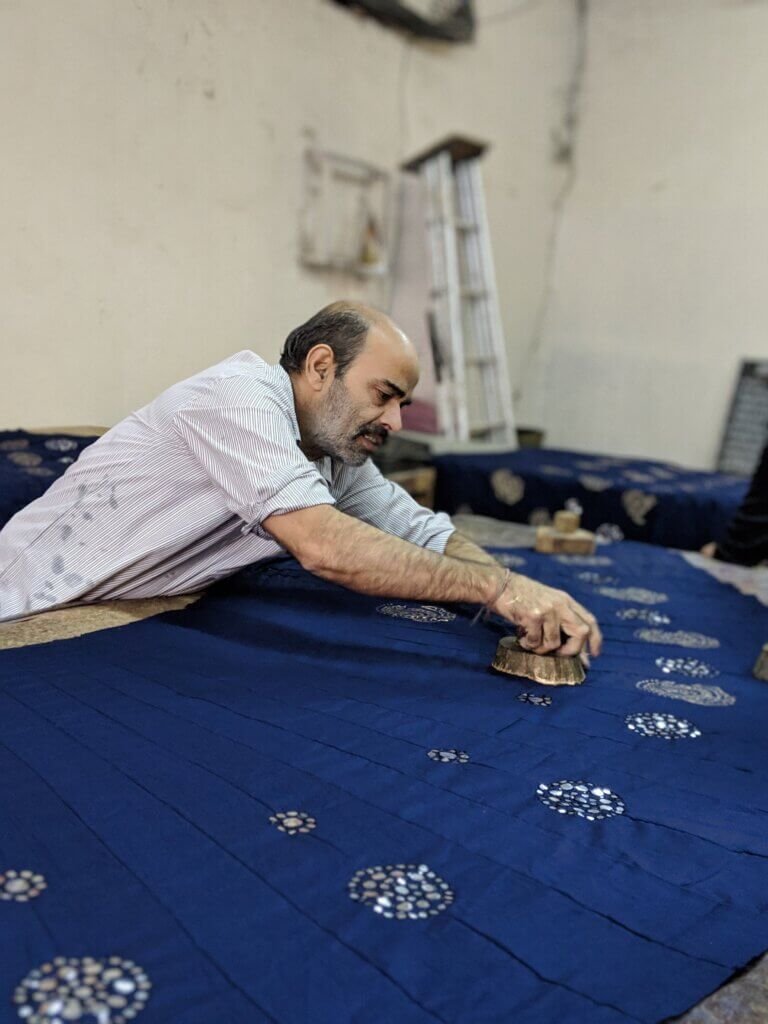You may have heard it said that age is just a number, but the truth is, many of us face insecurities and challenges as we get older. Whether it’s worrying about our appearance or feeling overlooked in our professional lives, these age-related concerns can weigh heavily on our self-esteem and overall well-being. But fear not, because in this article, you will discover practical tips and strategies to overcome these insecurities and embrace your age with confidence. From fostering a positive mindset to taking care of your physical health, we will explore various techniques to help you navigate the unique challenges that come with getting older. So, join us on this journey of self-discovery and empowerment as we unlock the secrets to conquering age-related insecurities and embracing the wisdom that comes with each passing year.

Understanding Age-related Insecurities
Exploring the impact of age-related insecurities
Age-related insecurities can have a significant impact on an individual’s overall well-being and quality of life. As we age, it is common to experience doubts and uncertainties about our appearance, abilities, and societal expectations. These insecurities can lead to lower self-esteem, increased stress levels, and even mental health issues. It is important to understand the impact of age-related insecurities in order to address and overcome them effectively. By acknowledging the negative impact they can have, we can take the necessary steps to foster self-acceptance and personal growth.
Recognizing common age-related insecurities
There are several common age-related insecurities that many individuals may face. One of the most prevalent is the fear of being perceived as old or irrelevant. This fear can stem from societal pressure to look and act youthful at all times. Other insecurities may include concerns about physical appearance, changes in abilities and cognitive decline, and uncertainties about career transitions and financial security. By recognizing these common insecurities, we can begin to address them in a proactive and compassionate manner.
Understanding the root causes of age-related insecurities
Age-related insecurities often stem from a combination of internal and external factors. Internally, individuals may struggle with feelings of self-doubt and fear of not meeting societal standards. External factors, such as ageism and negative stereotypes about aging, can also contribute to a person’s insecurities. Understanding the root causes of age-related insecurities is essential to effectively addressing and overcoming them. By recognizing that these insecurities are often influenced by societal expectations and biases, we can work towards challenging and changing these harmful norms.
Embracing Self-Acceptance
Developing a positive mindset about aging
One of the key steps in embracing self-acceptance is developing a positive mindset about aging. Instead of viewing aging as a negative process, it is important to recognize the unique opportunities and wisdom that come with getting older. Shift your focus to the positive aspects of aging, such as increased life experience, personal growth, and the ability to make a meaningful impact on others. By reframing your perspective, you can start to appreciate and accept yourself at any age.
Promoting self-compassion and self-care
Self-compassion and self-care are vital components of embracing self-acceptance. Treat yourself with kindness and understanding, recognizing that everyone goes through challenges and insecurities as they age. Make time for activities that bring you joy and fulfillment, whether it’s practicing hobbies, engaging in self-care routines, or simply taking time to relax and recharge. Prioritize your physical and emotional well-being, and remember that self-care is not a selfish act but a necessary one.
Challenging societal expectations and stereotypes
Societal expectations and stereotypes about aging can significantly impact our self-perception and confidence. It is important to challenge these harmful narratives and redefine what it means to age gracefully. Surround yourself with positive role models who defy stereotypes and embrace their age with confidence and pride. Challenge ageist attitudes and advocate for inclusivity and respect for all ages. By challenging societal expectations and stereotypes, you are empowering yourself and others to embrace their authentic selves.

Cultivating Personal Growth
Setting realistic goals for personal development
Personal growth is a lifelong journey that can bring fulfillment and purpose at any age. Setting realistic goals for personal development is an excellent way to cultivate growth and overcome age-related insecurities. Start by identifying areas in which you would like to grow or learn, whether it’s picking up a new hobby, acquiring new skills, or delving into a subject of interest. Break down your goals into achievable steps and celebrate each milestone along the way. Remember that personal growth is not defined by age but by your dedication and willingness to learn.
Seeking new experiences and opportunities
Seeking new experiences and opportunities is another effective way to cultivate personal growth and overcome age-related insecurities. Step outside of your comfort zone and try something new, whether it’s traveling to a new destination, attending social events, or taking up a challenging project. By exposing yourself to new experiences, you are expanding your horizons, fostering personal development, and building resilience. Embrace the unknown and allow yourself to grow and thrive in new and exciting ways.
Continuing education and lifelong learning
Learning should never stop, regardless of age. Continuing education and lifelong learning are excellent ways to cultivate personal growth and overcome age-related insecurities. Enroll in courses, workshops, or seminars that align with your interests and passions. Explore new topics and engage in intellectual discussions. Embrace the opportunity to learn from others, both younger and older, and share your own wisdom and experiences. Lifelong learning not only keeps your mind sharp but also boosts confidence and self-esteem.
Maintaining Physical Health
Adopting a healthy lifestyle and balanced diet
Maintaining physical health is crucial for overall well-being and can help combat age-related insecurities. Adopting a healthy lifestyle and balanced diet are fundamental steps in this journey. Focus on consuming nutritious foods that nourish your body and provide the energy you need to thrive. Incorporate a variety of fruits, vegetables, whole grains, lean proteins, and healthy fats into your diet. Stay hydrated and minimize the intake of processed and sugary foods. By nourishing your body, you will feel stronger, more energetic, and more confident in your physical abilities.
Incorporating regular exercise and physical activity
Regular exercise and physical activity play a vital role in maintaining physical health and combating age-related insecurities. Find activities that you enjoy and that align with your abilities, whether it’s walking, swimming, cycling, or practicing yoga. Aim for at least 150 minutes of moderate-intensity aerobic activity per week, along with strength training exercises. Not only will regular exercise improve your physical strength and stamina, but it will also release endorphins that boost mood and promote a positive body image.
Prioritizing preventive healthcare and regular check-ups
Preventive healthcare and regular check-ups are crucial for maintaining physical health and addressing any potential concerns proactively. Schedule routine appointments with your healthcare provider to monitor your overall health, discuss any symptoms or concerns, and receive necessary vaccinations and screenings. Stay up to date with recommended health screenings, such as mammograms, colonoscopies, and bone density tests. By prioritizing preventive healthcare, you are taking an active role in maintaining your well-being and addressing any age-related health issues promptly.

Nurturing Emotional Well-being
Building a support system of friends and loved ones
Building a support system of friends and loved ones is essential for nurturing emotional well-being and overcoming age-related insecurities. Surround yourself with individuals who uplift and support you, and with whom you can share your joys and concerns. Seek out social connections that foster a sense of belonging and understanding. Participate in activities and groups that align with your interests and values. By nurturing meaningful relationships, you are creating a network of support that can help you navigate life’s challenges and boost your emotional well-being.
Practicing stress-management techniques
Stress can significantly impact our emotional well-being, so it is important to practice effective stress-management techniques. Find healthy ways to cope with stress, such as engaging in relaxation exercises, practicing mindfulness or meditation, and engaging in hobbies that bring you joy. Prioritize self-care activities that help you unwind, such as taking soothing baths, listening to music, or spending time in nature. Remember to prioritize your mental and emotional well-being, and seek professional help if you need additional support.
Engaging in activities that bring joy and fulfillment
Engaging in activities that bring joy and fulfillment is an excellent way to nurture your emotional well-being and overcome age-related insecurities. Identify activities that you are passionate about or have always wanted to try, whether it’s painting, gardening, dancing, or volunteering. Find opportunities to engage in these activities regularly and dedicate time to pursue your passions. By engaging in activities that bring you joy and fulfillment, you are nourishing your soul and enhancing your overall well-being.
Staying Socially Connected
Joining community groups and organizations
Staying socially connected is important for maintaining a sense of belonging and combating age-related insecurities. Join community groups and organizations that align with your interests and values. Whether it’s a book club, a sports team, a religious or spiritual group, or a volunteer organization, being part of a community provides opportunities for social interaction, support, and friendship. Take an active role in participating in group activities and events, and foster meaningful connections with individuals who share similar passions and experiences.
Volunteering and giving back to the community
Volunteering and giving back to the community not only benefit others but also have a positive impact on your own emotional well-being. Find opportunities to contribute your time and skills to causes that are meaningful to you. Whether it’s volunteering at a local charity, mentoring young individuals, or getting involved in community projects, giving back can provide a sense of purpose and fulfillment. It allows you to contribute to something greater than yourself and builds connections with others who are similarly motivated.
Utilizing technology to maintain social connections
In today’s digital world, technology offers various avenues for staying socially connected, regardless of age or physical location. Utilize technology platforms such as social media, video calls, and messaging apps to maintain connections with family, friends, and loved ones. Join online communities and forums that focus on topics of interest to you. Engage in virtual events, classes, and workshops to interact with like-minded individuals. Technology can bridge the gap and help you maintain social connections, even if physical distance presents a challenge.

Coping with Changes in Appearance
Promoting positive body image and self-acceptance
Coping with changes in appearance is a common age-related insecurity, but it is important to promote a positive body image and self-acceptance. Focus on appreciating your body for its resilience, strength, and uniqueness. Treat yourself with kindness and compassion, reframing your perspective to celebrate the aging process as a natural part of life. Surround yourself with positive role models who embrace their bodies at any age, and challenge unrealistic beauty standards promoted by society. By promoting positive body image and self-acceptance, you can develop a healthier relationship with your appearance.
Exploring personal style and fashion choices
Exploring personal style and fashion choices can be an empowering way to cope with changes in appearance and boost self-confidence. Experiment with different clothing styles, colors, and accessories that make you feel comfortable and express your personality. Embrace age-appropriate fashion trends while still staying true to your personal taste and preferences. Seek advice from fashion professionals or friends who have a good sense of style. By exploring and embracing your personal style, you can enhance your self-image and feel more confident in your appearance.
Taking care of skin, hair, and overall grooming
Taking care of your skin, hair, and overall grooming routine can help you feel more confident and comfortable in your appearance. Develop a skincare routine that suits your specific needs and addresses any concerns, such as moisturizing dry skin or protecting it from sun damage. Pay attention to your haircare routine, choosing hairstyles and treatments that make you feel good. Take care of your nails, practice good oral hygiene, and pay attention to overall grooming habits that make you feel polished and put together. By investing time and effort into self-care practices, you can enhance your appearance and boost your self-confidence.
Navigating Career Transitions
Redefining career goals and aspirations
Navigating career transitions can be a source of uncertainty and insecurity, but it also presents an opportunity for personal growth and fulfillment. Take the time to redefine your career goals and aspirations, considering what truly motivates and excites you. Reflect on your passions, skills, and values, and explore career paths that align with them. Seek guidance from career coaches or mentors who can provide insights and support during the transition. Embrace the opportunity to reinvent yourself and pursue a career path that brings purpose and satisfaction.
Updating and acquiring new skills
Updating and acquiring new skills is crucial for navigating career transitions and overcoming age-related insecurities. Identify the skills that are in demand in your desired industry or profession and invest in learning them. Explore online courses, workshops, or certifications that can help you acquire the necessary skills. Seek mentorship or apprenticeship opportunities to gain practical experience. Utilize your existing skills and knowledge as a solid foundation upon which to build new ones. By continuously updating and acquiring new skills, you are positioning yourself for success in your new career path.
Exploring second career options and entrepreneurship
Exploring second career options and entrepreneurship is an alternative path for navigating career transitions. Consider the opportunities and challenges that come with starting your own business or pursuing a different career path altogether. Assess your skills, experience, and resources to identify opportunities in industries that interest you. Network with professionals in your desired field and seek advice from those who have successfully transitioned into new careers. Embrace the potential for growth and fulfillment that comes with exploring second career options or entrepreneurship.

Managing Financial Concerns
Assessing financial goals and planning for the future
Managing financial concerns is an important aspect of overcoming age-related insecurities. Start by assessing your financial goals and priorities, considering factors such as retirement, healthcare, and future expenses. Create a budget that aligns with your income and expenses, allowing for savings and investments. Seek advice from financial professionals to help you navigate retirement planning, tax strategies, and investment options. By taking control of your financial future, you can alleviate worries and uncertainties about money and lay a solid foundation for your retirement years.
Investing in retirement savings and pension
Investing in retirement savings and pension plans is crucial for ensuring financial security in later years. Explore options such as employer-sponsored retirement plans, individual retirement accounts (IRAs), and other investment vehicles that offer tax advantages and long-term growth potential. Determine the amount you can comfortably contribute to your retirement savings and establish a consistent saving habit. Educate yourself on the various investment options available and seek professional advice if needed. By prioritizing retirement savings, you are taking proactive steps towards securing a financially stable future.
Seeking professional financial advice and support
Managing financial concerns can be complex, so seeking professional financial advice and support is highly beneficial. Consult with a financial advisor who specializes in retirement planning and can provide guidance tailored to your unique circumstances. Discuss your financial goals, risk tolerance, and time horizon to develop a comprehensive financial plan. The expertise and knowledge of a financial professional can help you navigate the complexities of investment options, tax implications, and insurance needs. By seeking professional financial advice, you are ensuring that your financial concerns are addressed with expertise and care.
Seeking Professional Help and Resources
Considering therapy or counseling
Navigating age-related insecurities and challenges can sometimes require professional guidance and support. Consider therapy or counseling as a valuable resource for addressing deep-rooted insecurities and gaining insights and coping mechanisms. A licensed therapist or counselor can help you explore your feelings, thoughts, and behaviors, and provide strategies to overcome challenges and promote personal growth. They can assist in reframing negative self-perceptions and developing a healthier mindset. Don’t hesitate to seek professional help when needed; it can be a transformative step towards self-acceptance and emotional well-being.
Exploring support groups and community resources
Support groups and community resources offer valuable opportunities for connecting with others who may be experiencing similar age-related insecurities and challenges. Seek out support groups specific to your concerns, whether it’s a group focused on body image, career transitions, or emotional well-being. Engage in discussions, share experiences, and learn from others who have walked a similar path. Additionally, explore local community resources such as senior centers, wellness programs, or workshops that provide support and education. By tapping into these resources, you can find a sense of belonging and access valuable tools for overcoming age-related insecurities.
Accessing online information and resources
In today’s digital age, there is an abundance of online information and resources available to support individuals facing age-related insecurities and challenges. Research reputable websites, blogs, and forums that provide valuable insights, tips, and strategies for overcoming specific insecurities. Engage in online communities and social media groups that foster positive discussions and provide support. Access online courses or webinars that focus on personal growth, career development, or emotional well-being. By utilizing online information and resources, you can gain valuable knowledge, connect with like-minded individuals, and find the support you need to overcome age-related insecurities.
In conclusion, overcoming age-related insecurities and challenges requires a multifaceted approach focused on self-acceptance, personal growth, physical and emotional well-being, social connection, and financial management. By understanding the impact of age-related insecurities, embracing self-acceptance, and cultivating personal growth, individuals can navigate the challenges of aging with confidence and resilience. Prioritizing physical health, nurturing emotional well-being, staying socially connected, and seeking professional help and resources are all crucial components of this journey. With the right mindset, support, and resources, individuals can overcome age-related insecurities and embrace each stage of life with optimism and fulfillment.


